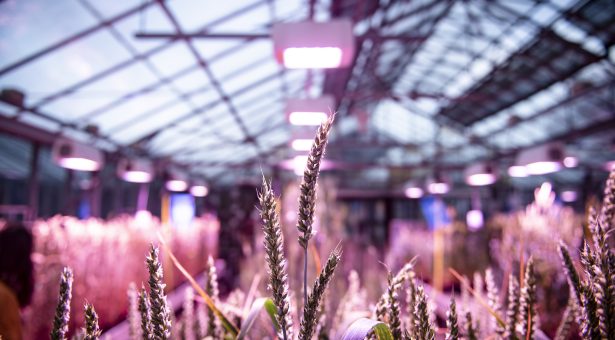About Delivering Sustainable Wheat (DSW)

The Delivering Sustainable Wheat (DSW) programme addresses key challenges facing wheat production. Wheat is an essential crop globally and is a staple in the UK and Western Europe. With a projected population of 10 billion by 2050, the need for sustainable wheat production is urgent. However, the current production of wheat is fragile, and the majority of the world’s supply comes from just five countries. Climate change, new diseases, and declining water resources pose significant challenges for farmers, and future increases in production must be achieved without equivalent growth in fertilizer use, which is a significant source of greenhouse gases.
The DSW programme aims to address these challenges by enhancing wheat production sustainably and improving human nutrition by applying our biological knowledge of key traits for the benefit of wheat consumers. The programme has been developed based on extensive discussions with wheat community stakeholders to ensure it is focussed on the right questions. DSW has access to world-leading experimental platforms and gene discovery populations aligned to genomic resources that enable the programme to efficiently identify new and useful genes and their role in molecular mechanisms enabling . With gene editing the function of DNA changes can be verified and the value of new traits for breeding tested more quickly.
DSW will also investigate how wheat might serve as a CO2 sink and contribute towards efforts to reduce agricultural greenhouse gas emissions. This research depends on a deep understanding of the dynamic process of nitrogen use efficiency and adaptation to a changing climate. DSW will identify new disease resistances for existing and potential threats and find long-term solutions for sustainable disease resistance, which will be incorporated into sustainable integrated pest management programmes.
The programme will also focus on increasing the nutritional benefits of wheat by improving Iron, Zinc, Calcium, and fibre content of the grain. For the first time, the wheat programme will conduct human intervention trials to provide direct evidence for the physiological benefits of nutritionally improved wheat.
DSW is a highly integrated cross-disciplinary programme that brings together the complementary skills of four research Institutes and five universities and the National Institute of Agricultural Botany. The programme invests in pre-breeding to ensure that the new traits, genes, knowledge, and new types of wheat feed into breeding, farming, and food production. Open and fair data access is at the heart of the programme to ensure its success and progress for plant breeders and wheat research around the world.
DSW is a unique coordinated UK contribution to the global challenges facing wheat production and hope to play an important role in achieving sustainable production in the coming decades.
